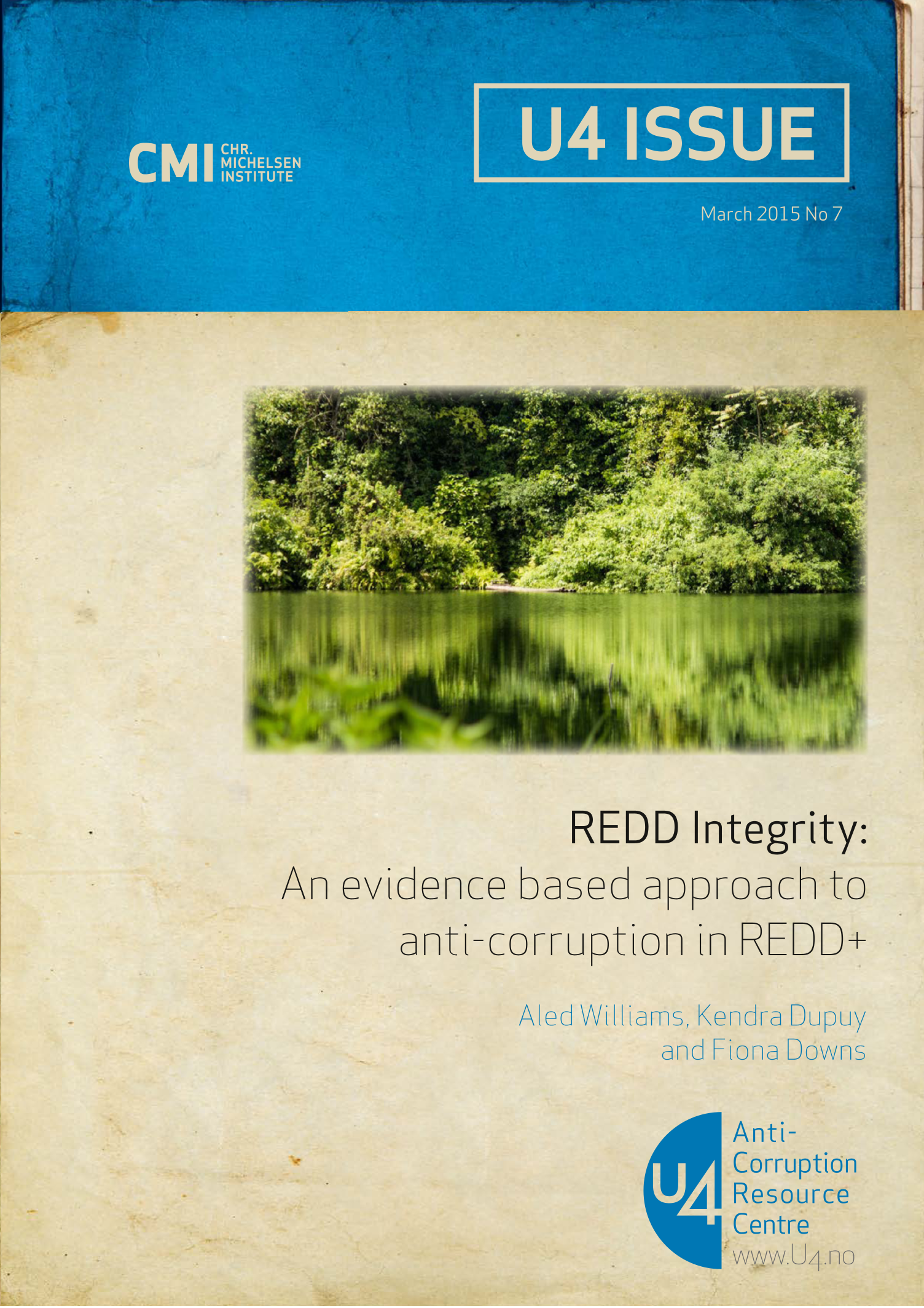U4 Issue
REDD Integrity: An evidence based approach to anti-corruption in REDD+
Schemes for Reducing Emissions from Deforestation and Forest Degradation (REDD+) have emerged as a means to address deforestation trends in developing countries and related emissions of forest carbon. Governance and corruption challenges facing REDD+ are widely acknowledged to be daunting both in their scale and severity. Learning lessons from empirical studies on corruption, anti-corruption and early REDD+ activities is important for minimising corruption risks in future REDD+ implementation. This U4 Issue paper draws together findings and suggestions for anti-corruption policy and practice from U4’s three year REDD Integrity project. We find that addressing corruption in REDD+ requires a broad approach to accountability and not one merely focused on protecting REDD+ financing. There are often few legal mechanisms for external monitoring of community elites engaging with REDD+, and more attention needs to be placed on developing a cadre of REDD+ programme staff with anti-corruption expertise. Clearer procedures for managing forest carbon funds and distributing them to relevant rights holders will be vital to reduce many corruption risks.

Cite this publication
Williams, A.; Dupuy, K.; Downs, F. (2015) REDD Integrity: An evidence based approach to anti-corruption in REDD+. Bergen: Chr. Michelsen Institute (U4 Issue 2015:7) 24 p.
Disclaimer
All views in this text are the author(s)’, and may differ from the U4 partner agencies’ policies.
This work is licenced under a Creative Commons Attribution-NonCommercial-NoDerivatives 4.0 International licence (CC BY-NC-ND 4.0)


